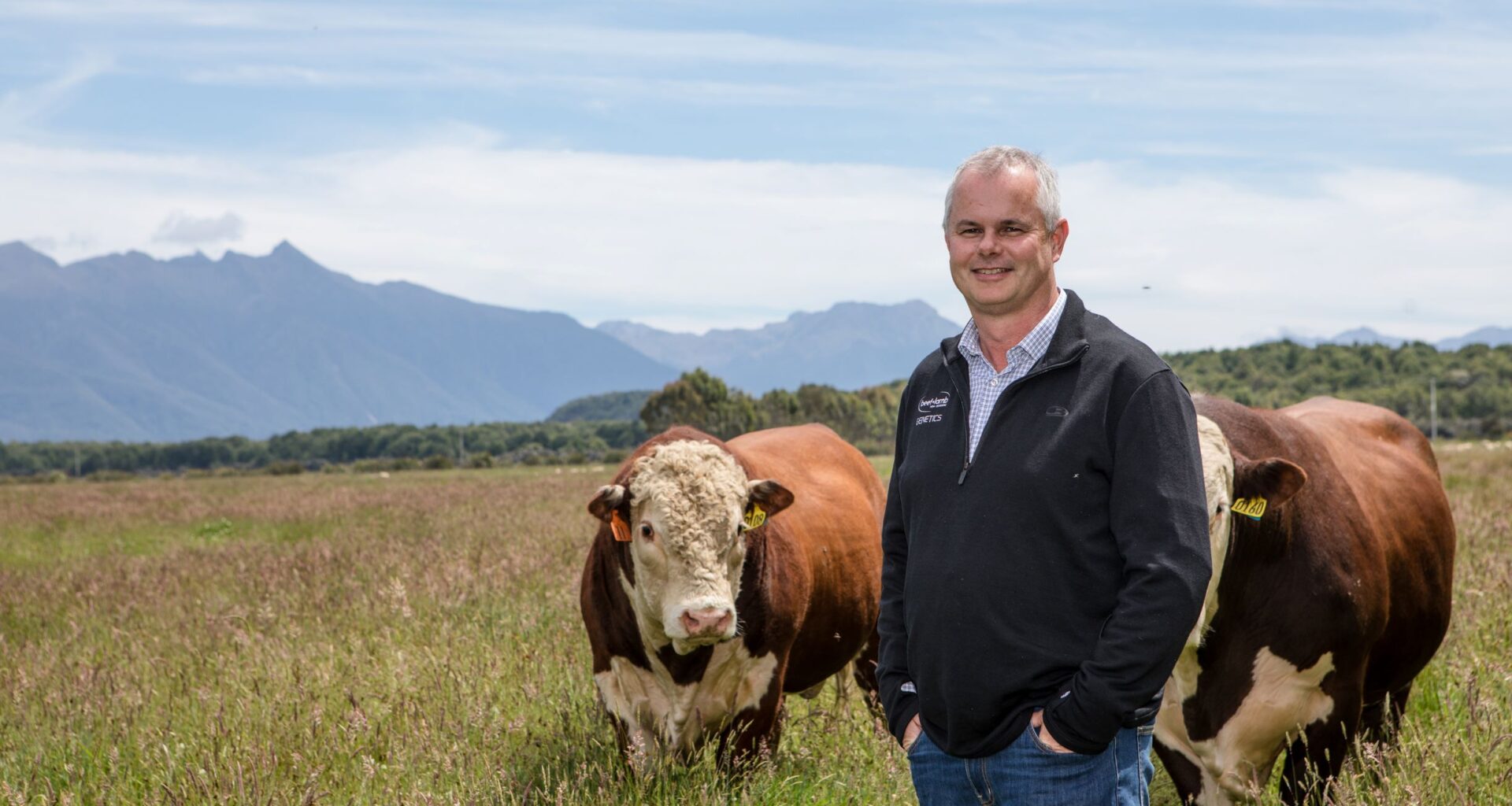Reading Time: 3 minutes
By Dr Jason Archer, head of genetics at Beef + Lamb New Zealand
For too long, the New Zealand beef sector has lagged behind its sheep and dairy counterparts in harnessing the power of genetics to drive productivity.
That’s changing – and it’s changing because the industry is pulling in the same direction.
Beef + Lamb New Zealand (BLNZ) has just launched nProve Beef, a free, easy-to-use online tool that puts the power of genetics into the hands of commercial beef farmers.
Developed through the Informing New Zealand Beef (INZB) programme – and built in close partnership with breed societies across the country – nProve Beef marks a step forward in how New Zealand farmers select the right bulls for their operations.
The tool launches alongside new beef indexes designed for NZ systems with a common approach used across all breeds, another milestone that has been years in the making.
Together, these innovations are designed to make genetic selection easier, faster and more profitable for farmers.
What sets nProve Beef apart is not just the technology, but the collaboration behind it.
Partnerships with Angus NZ, NZ Herefords, Simmental NZ and the NZ Beef Shorthorn Association were central to making sure the tool is both practical and relevant.
That willingness to work together – to focus on shared challenges rather than individual interests – has been one of the most rewarding outcomes of the INZB programme.
In 2023, representatives from major beef organisations joined an INZB study tour across North America, visiting farms, universities and research centres, and attending the Beef Improvement Federation Symposium.
What we saw was staggering: substantial investment in genetic research and technology, on a scale we can’t match. But more importantly, we came home with a shared understanding – NZ is small and we can’t afford to fragment further and work in isolation from each other.
With just 1 million breeding cows compared to 29 million in the US, we must collaborate if we want to be globally competitive.
That tour cemented a new mindset. Since then, breed societies have built trust, aligned around common goals, and opened the door to more unified, strategic thinking.
nProve Beef is the first major result of that shift – and it’s already proving its value. Timed for this year’s bull buying season, the tool allows commercial farmers to filter bulls based on traits that matter most to them, using simple buttons and sliders. It then generates a list of stud breeders offering bulls that match those preferences.
You don’t need to be a geneticist to use nProve Beef.
To simplify decision-making, the tool uses three indexes – maternal, terminal and beef on dairy – all developed by NZ-based global experts AbacusBio working with BLNZ.
These indexes distil complex estimated breeding values (EBVs) into something practical: an economic value tailored to NZ farming systems. Each overall index is further broken down into sub-indexes, representing trait groupings that are expressed in different parts of the value chain.
For example, the maternal index is broken into breeding, calving, finishing and carcase sub-indexes, which provides a clear snapshot of a bull’s strengths and weaknesses, without needing to understand the component EBVs.
But for the enthusiast and those with a deeper knowledge of beef breeding, there is the option to dig deeper if you want to.
It is no coincidence that the tool is on the same platform as the equivalent tool for buying rams, and has a similar look and feel – all done to minimise the burden on farmers having to learn different systems and go to multiple places to find relevant information.
The potential is huge. The INZB programme aims to lift sector profits by $460 million. Tools like nProve Beef are a critical step toward that goal. They give farmers the means to improve productivity and meat quality – especially in traits like marbling – regardless of breed.
And this is just the beginning.
As the tool evolves, more breed societies are coming on board. Potential future enhancements include a “genetic scorecard” for individual commercial farmers, based on the bulls they’ve used, to help manage bull teams and track long-term genetic progress.
The focus is squarely on the commercial farmer and helping them make good genetic decisions, taking advantage of the good work being done by our beef bull breeders.
You might also be interested in…
Ideas That Grow | Genetic technologies in agriculture
In this Ideas that Grow podcast, Lisa Lunn, 2024 Kellogg Scholar, talks to Bryan Gibson about her Kellogg research into the use of genetic technologies in agriculture. Lisa’s research presents a balanced view that unpacks the challenges, and the opportunities genetic technologies offer the food and fibre sector.
